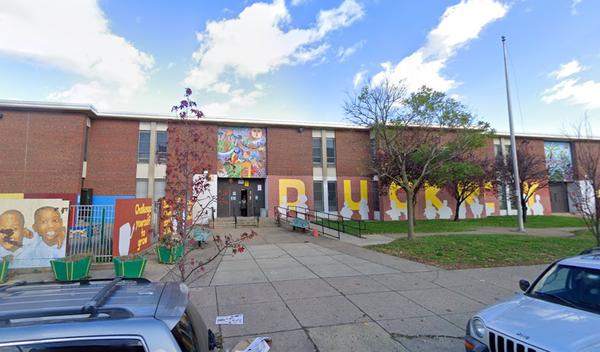Philadelphia's public schools could receive all-new water filtration systems by 2025, as City Councilmember Helen Gym introduced new legislation on Thursday.
The ordinance would require all facilities operated by the School District of Philadelphia to install point-of-use, modern water filtration systems in its drinking fountains and hydration stations, effectively eliminating the contaminant from the city's public schools.
If passed, the Philadelphia's public schools would have until June 1, 2025 to implement the changes, installing both new filtration systems and including a "filter-change indicator," to keep the water fountains and hydration stations clean and effective.
"The only safe amount of lead in our schoolkids' water is zero — and this legislation will make that a reality," said Councilmember Helen Gym. "Every child deserves safe, clean drinking water, and the pandemic underscored the need for higher standards for public health. We want every student, every family, and every school community to feel confident in knowing the water they drink is lead free."
In 2016, City Council – lead by Gym — passed legislation requiring the district to self-report data on lead contamination in its drinking water, setting a limit of 10 parts per billion as the determining factor in whether a water source – including drinking fountains, hydration stations, and faucets – needs to be shut off and replaced.
The bill also required the School District to install at least three hydration stations in every city school, and water quality testing by the School District has confirmed the effectiveness of the filtration systems in keeping lead contamination undetectable.
"My first legislative campaign was to ensure and expand safe water access to every City school, and today, we're setting a deadline to get this done," said Gym. "I hope that this spurs our District, city, and state to take action on the deplorable physical condition of our schools and to boldly invest in modernizing all our school buildings."
Lead contamination in school drinking water was the focus of a study released in February by Pennsylvania Public Interest Research Group, in collaboration with Penn Environment and the Black Church Center for Justice.
In it, researchers analyzed some of the self-reported data on water contaminants from the School District, finding that 71% of schools still needed to be tested for lead contamination.
Of the ones that were tested, researchers found 98% of school water outlets tested positive for some kind of lead contamination. When adjusted for the standard safety rate set by City Council in 2016, that number changes to 80%.

Overall, the group of researchers found that 61% of water outlet sources have some sort of lead contamination.
Reggie McNeil, chief operating officer at the School District of Philadelphia, responded to the study, calling it "misleading." He wrote that all of the facilities operated by the School District were tested once in 2017 and then placed on a five-year cycle for additional testing, noting that once an outlet source is deemed unsafe due to its lead contamination, it is turned off.
The data compiled for the study was self-reported from the School District of Philadelphia, which has been required to report its data on a five-year cycle since 2018. The self-reporting deadline for the district is set in April 2023, according to McNeil.
Four years into the process, only 29% of its schools have publicly released data on lead contamination. The School District's data is available publicly on its website, including letters that have been sent to parents reporting contamination issues.
McNeil also noted the delay in results, noting that the COVID-19 pandemic made it challenging to continue to test the water output sources.
When schools were closed to in-person learning, the water sources were not seeing as much use by students, which McNeil said would have made the collected data misleading.
Replacing the outdated filtration systems is a simple way to ensure that students and families are confident in the drinking water provided in city schools, says Gym.
If passed, the ordinance requires any water fountains inside of public schools in the city must be made of lead-free materials, and replaced if not.
"Schools should be safe places where kids go to learn, achieve and grow up to be productive citizens in society," said David Masur, executive director of Penn Environment Research and Policy Center. "Councilmember Gym's legislation goes a long way towards helping achieve that goal and making Philadelphia a national leader in the effort to address the threat of lead in school drinking water."
The legislation already had broad support from City Council, with eight additional councilmembers co-sponsoring the ordinance.
